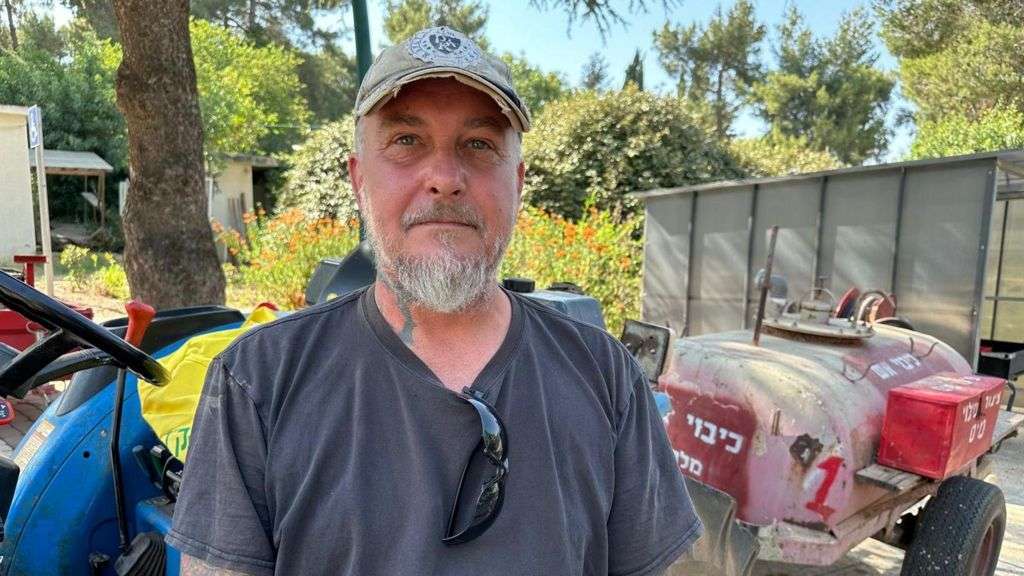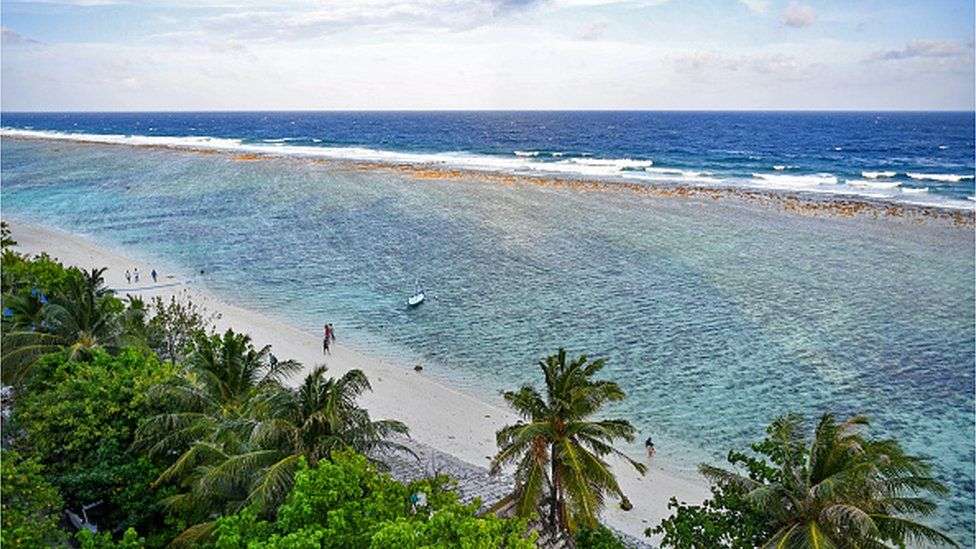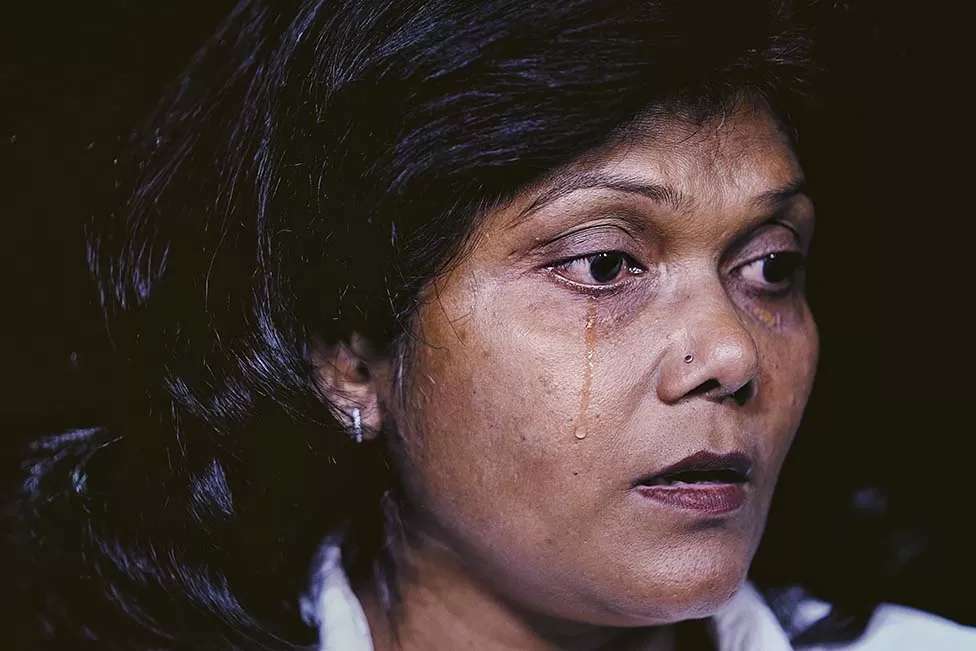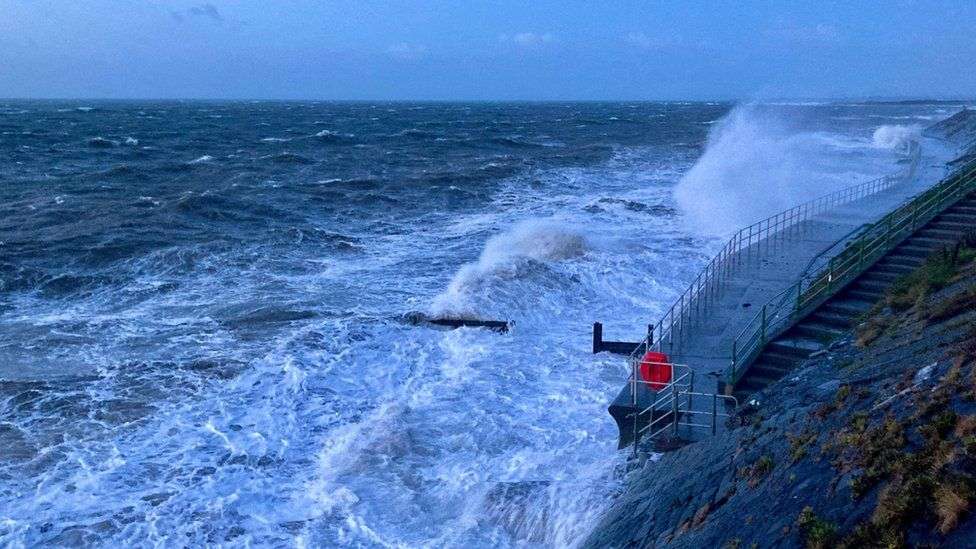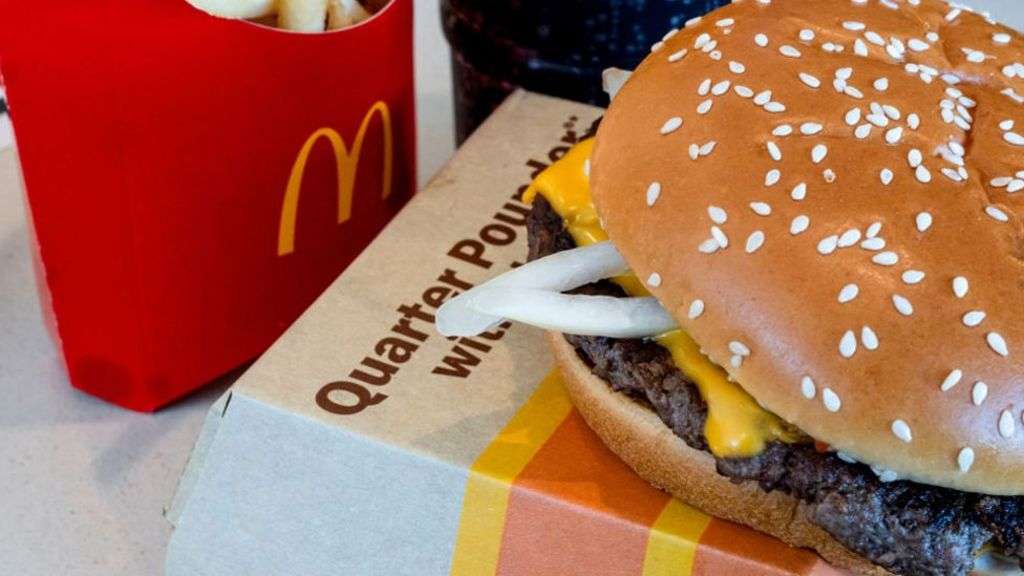Three rusty water-trucks stand at the edge of Kibbutz Malkiya, on Israel’s border with Lebanon; little bigger than a family car, they look like something out of an old cartoon.
A collection of industrial leaf-blowers is stacked nearby.
“This is all we have,” resident Dean Sweetland explains. “We have just these - and the leaf-blowers - to blow the fire back onto the dead areas.”
Dean, a Londoner who moved to the kibbutz eight years ago, is one of a dozen residents left to tackle recent bushfires in the area, sparked by Hezbollah rockets from Lebanon.
“We’re on our own,” he says. “The flames can be six metres tall. Sometimes you just can’t get near it.”
He gestures to the leaf-blowers standing in the sun.
“And we’re fighting it with gardening tools.”
Over the past few days, footage of the fires has made headlines in Israel.
The blazes, triggered when Hezbollah rockets hit dry undergrowth in soaring summer temperatures, have burned through 3,500 acres, according to forest administrators.
Monday was “a battle day”, said Israel’s Fire and Rescue Commissioner, Eyal Caspi, with 94 fires burning across these northern hills.
Most are now out, or under control, but rockets fly over homes here several times a day and each one carries the potential to spark a new blaze.
And there are places at the moment where firefighters don’t go.
“There is a war here and in a war zone, operations are different,” Mr Caspi told Israel’s Kan News radio station.
“In certain areas, where there is no immediate danger to human life... where the army knows that the firefighters can get hurt, it gives us the instruction not to enter. And I back it up.”
From the back terrace of his home - built from shipping containers, a few hundred meters from the Lebanese border - Dean Sweetland points out the plumes of grey smoke rising from the hills nearby, to the sound of distant bombs and fighter jets.
Most of the other residents of Kibbutz Malkiya were evacuated in the days following the Hamas attacks on Israel on 7 October, when its Hezbollah allies in Lebanon began firing on communities here. Both armed groups are labelled as terrorist organisations by Israel, the US and others.
But Dean, who used to serve in the British Army, stayed on. He is part of a group of residents from border communities who race to put out the fires that fire crews are blocked from accessing.
The Israeli army, he says, is not a solution.
“Especially when we’re in the line of sight for Hezbollah, they’ll see the soldiers and send a rocket,” he says. “We hear the drones when we’re putting the fires out.”
In the early days of the war, Dean says, tanks were parked around the kibbutz and attracting a lot of Hezbollah fire.
They’ve now left, and in between the bombardments, the kibbutz is peaceful. But Dean and his neighbours feel the emptiness. Families evacuated eight months ago are still living in temporary accommodation further south.
The blazes here are a vivid reminder that the Israeli government’s promise to secure these northern areas and get residents back home is still unfulfilled.
“We feel like we’re the forgotten people,” Dean says. “They don’t care about the north.”
The attitude among many in the country, he says, is “let it burn”.
“I think we have to take out Hezbollah for 10km, maybe more,” says Yariv Rozenberg, the deputy commander of Kibbutz Malkiya’s civil defence team.
“You can’t kill them all, and they won’t leave from here. But we need more army here, and we need to go back to our life – to bring our families back.”
As the months go by, pressure is mounting on Israel’s government to resolve this conflict and get people home.
Israel’s far-right security minister this week called for Israel to burn “all Hezbollah strongholds: destruction, war!”
Others have been more measured. War with Hezbollah would be a much more difficult and dangerous conflict than the one Israel is fighting in Gaza.
Hezbollah’s deputy chief, Sheikh Naim Qassem, told the Al Jazeera television station that the group was not seeking to widen the conflict but that any Israeli expansion of the war would be met “with devastation”.
Before a meeting of the war cabinet to discuss the situation on Tuesday night, the Israeli military’s chief of staff, Lt Gen Herzi Halevi, said the country was “approaching the point where a decision will have to be made”.
The armed forces, he said, were “prepared and ready to move to an offensive”.
Prime Minister Benjamin Netanyahu, visiting troops and firefighters in the northern town of Kiryat Shmona on Wednesday, said the government was prepared for “a very strong action in the north.”
“One way or another we will restore security to the north,” he said.
Many believe a ceasefire in Gaza would help cool the situation further north.
“Gaza is the key,” Dean says. “It needs to be dealt with, one way or the other. Then Hezbollah will stop, because they’re doing this in support of Hamas.”
The northern conflict is closely linked to the war in Gaza.
For the past eight months, with the focus on Gaza, Israel’s leader has tried to keep this conflict contained.
Now he’s facing a glaring reminder of this other front: caught between the war he hasn’t finished in the south, and the war he doesn’t necessarily want to start.


